Dictionary
Abroad
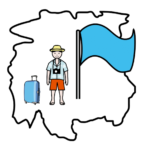
- Definition:
-
Any place outside one’s country.
-
Cualquier lugar fuera del propio país.
- Example:
-
I traveled abroad twice last year.
-
Viajé al extranjero dos veces el último año.
- Spanish word:
-
País extranjero
- Audio:
Accommodation

- Definition:
-
A place where you lodge or stay when you travel outside your house.
-
Un lugar, bien un hotel o apartamento, donde te alojas cuando estás fuera de casa.
- Example:
-
We found the perfect accommodation for our holidays in Hawai.
-
Encontramos un alojamiento perfecto para nuestras vacaciones en Hawai.
- Spanish word:
-
Alojamiento
- Audio:
Budget
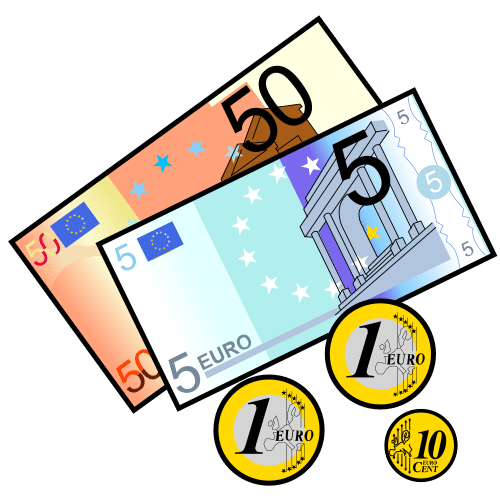
- Definition:
-
The amount of money you expect to spend.
-
La cantidad de dinero que se espera gastar.
- Example:
-
The team had a 500 euro budget to design their new project.
-
El equipo tenía un presupuesto de 500 euros para diseñar el nuevo proyecto.
- Spanish word:
-
Presupuesto
- Audio:
Expenses

- Definition:
-
The amount of money a person spends while travelling or working for their company.
-
La cantidad de dinero que una persona gasta mientras viaja o trabaja para su empresa.
- Example:
-
He used his credit card to pay all his travel expenses.
-
Él usó su tarjeta de crédito para pagar todos los gastos de viaje.
- Spanish word:
-
Gastos
- Audio:
Journal
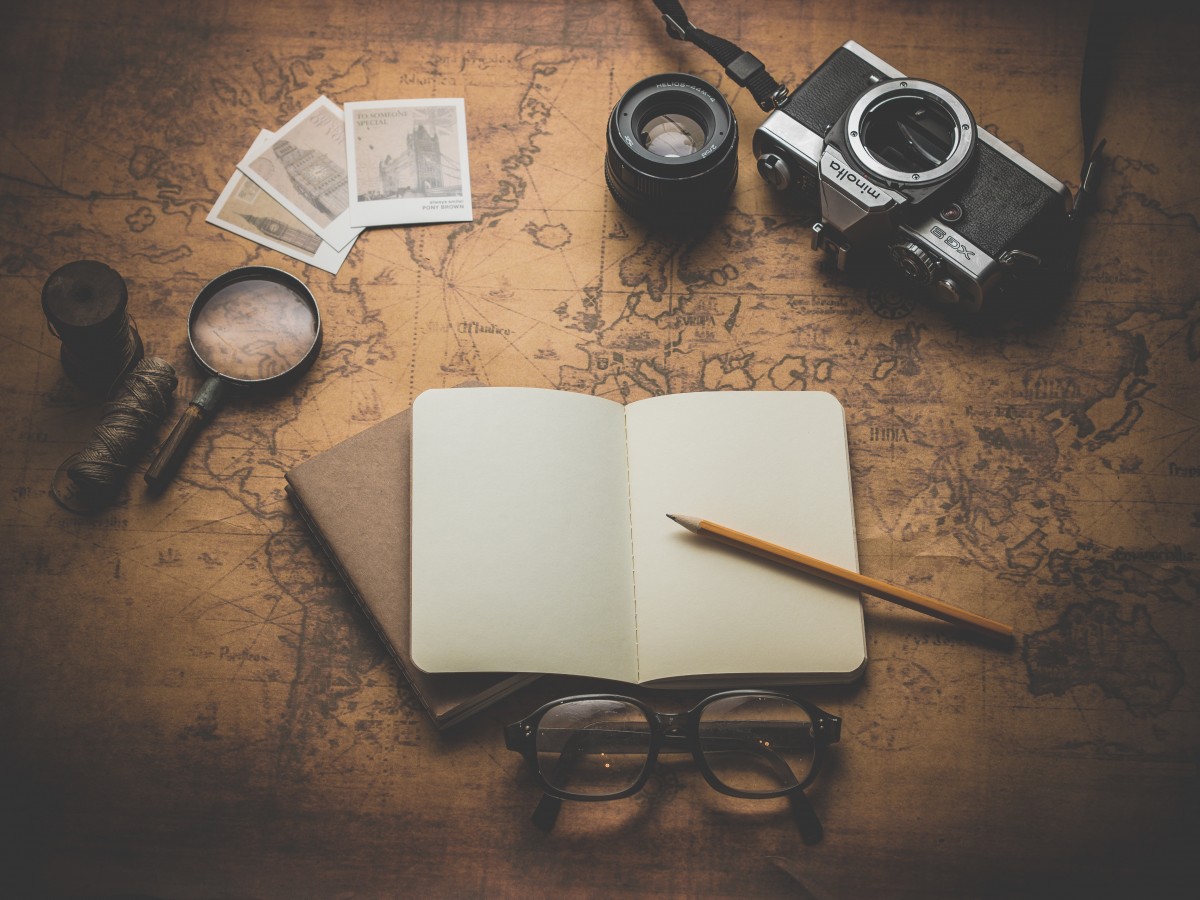
- Definition:
-
A list of ideas that are written down daily usually in a small book, of things that happen, things one sees, or things one thinks about.
-
Una lista de ideas que se suelen escribir diariamente, normalmente en un pequeño libro sobre cosas que te pasan, cosas que ves o ideas que piensas.
- Example:
-
She keeps a daily journal from her childhood.
-
Ella guarda un diario desde su infancia.
- Spanish word:
-
Diario
- Audio:
 Our challenge is to create a front page with Retor Fog’s travel experiences. When you travel abroad, you have to think about these questions:
Our challenge is to create a front page with Retor Fog’s travel experiences. When you travel abroad, you have to think about these questions: In your challenge you create a front page.
In your challenge you create a front page. When you travel abroad you ask about:
When you travel abroad you ask about: - The transport and the expenses.
- The transport and the expenses.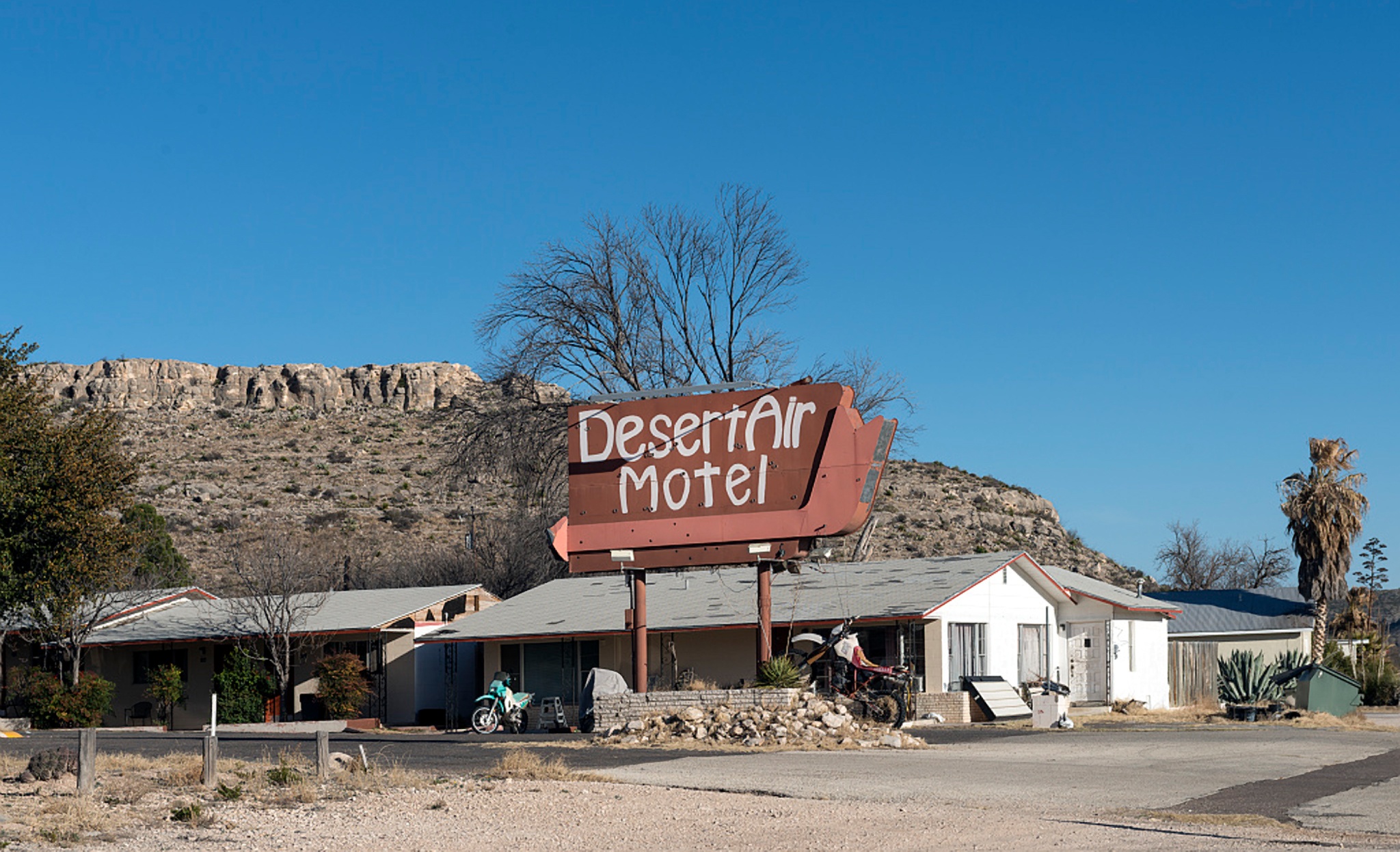 - Type of accommodation you prefer: hotel, apartment and others..
- Type of accommodation you prefer: hotel, apartment and others..
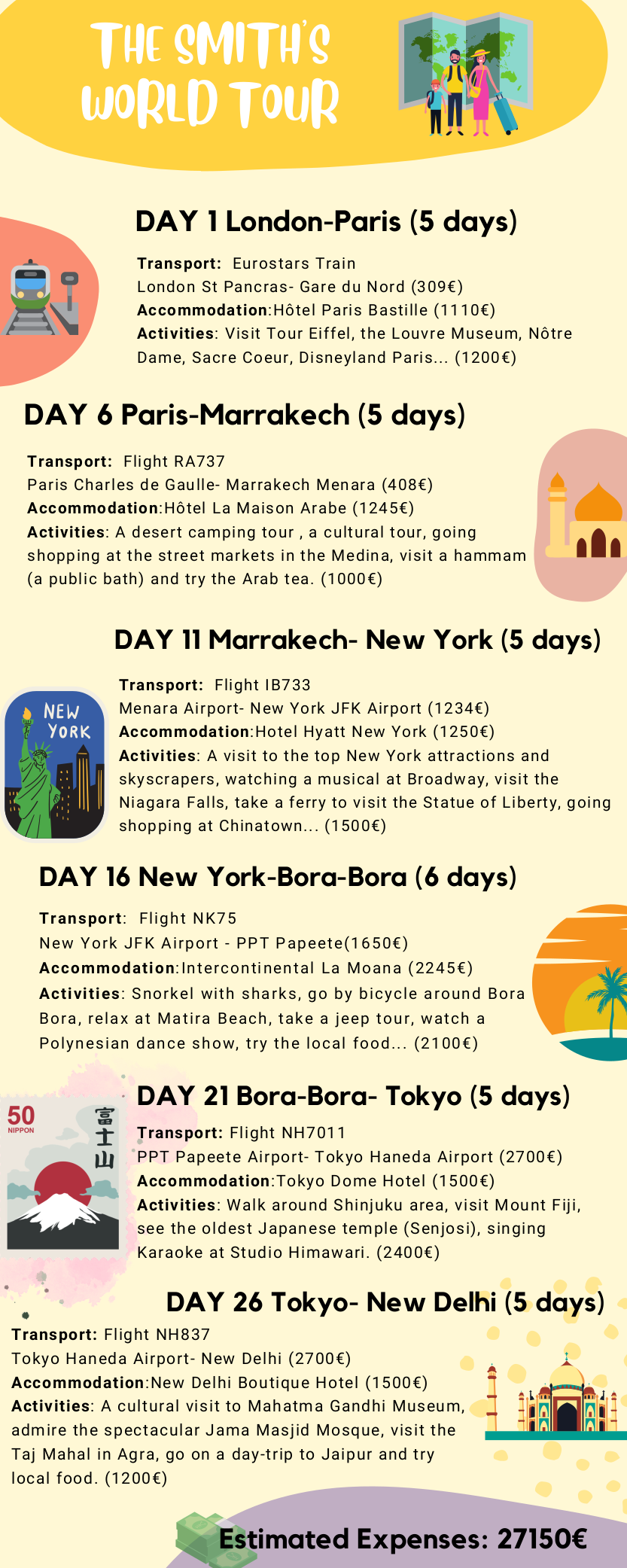
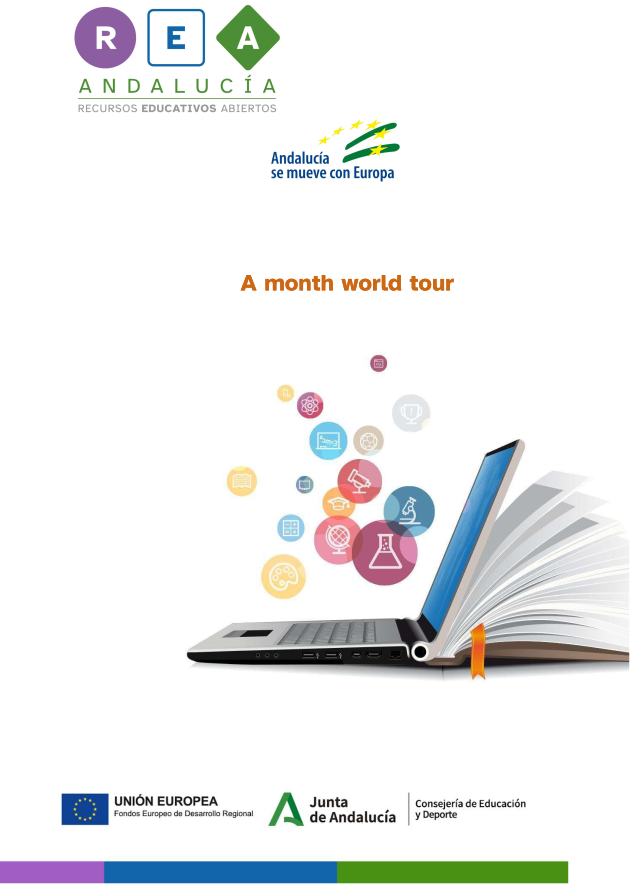
 Travel opens your mind.
Travel opens your mind. You design a travel plan around the world
You design a travel plan around the world You use the information from the infographic:
You use the information from the infographic: The teacher suggest six different cities.
The teacher suggest six different cities. You use the worksheet.
You use the worksheet.
 Work in groups of three.
Work in groups of three. You take photos of that place to class.
You take photos of that place to class.  You include useful information for tourists.
You include useful information for tourists. You explain your choice.
You explain your choice.